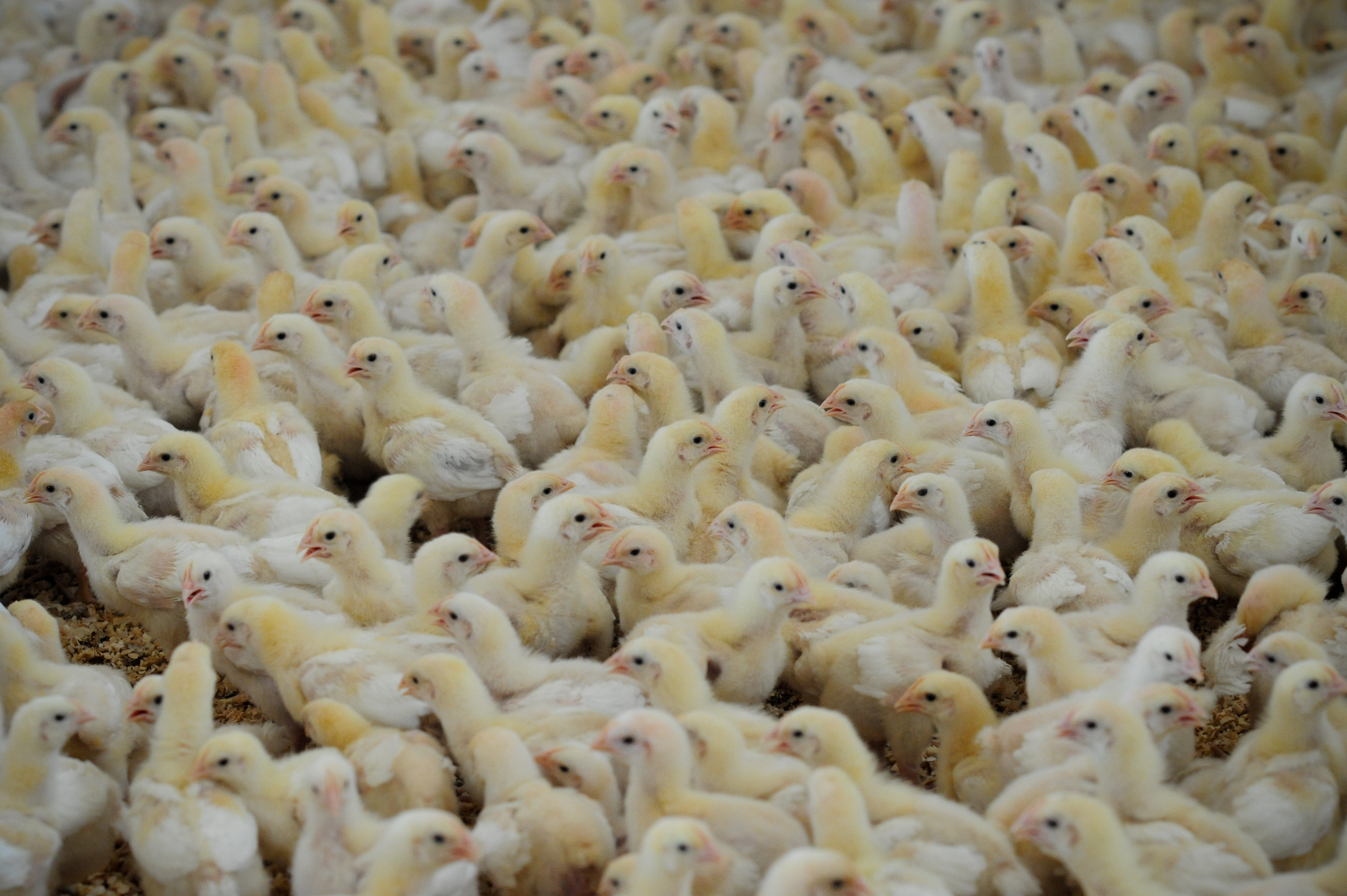The term “free-range” is widely used to market and sell eggs. As consumers, we are led to believe that free-range means cruelty-free. Sadly, this just isn’t true. Scroll down to read why…
Hens destined for free-range farms still begin their lives in hatcheries
Hatcheries are factories where chickens’ eggs are intensively incubated and hatched, and regardless of whether they end up on a free-range farm or a conventional farm, the lives of all chickens begin here.
After hatching, male and female chicks are separated, as only the female chicks will grow up to lay eggs. Because they cannot lay eggs, male chicks are of no subsequent use to the egg industry. They are killed, therefore, at about one day old. The most common methods of slaughter are gassing, suffocating, crushing, or grinding alive. In the US alone, as many as 300 million chicks are killed this way every year.
The lives of all chickens, free-range or not, begin with violence.
Free-range hens are still destined for an early death
Egg production peaks when a hen is around one to two years of age. When a hen is no longer productive enough for a farm’s needs, she is usually killed for low-grade meat, far earlier than her natural life span of around seven or eight years*. Free-range hens are still regarded as ‘egg producing machines’, and are slaughtered as soon as they cease to be profitable.
*This is an acknowledged average lifespan for a chicken. Chickens are so badly treated that even rescued chickens tend to die young due to illness and disease contracted in their early months and years on farms. It has been reported that some chickens, when allowed to live and grow naturally, have lived up to 13 years of age.
Free-range hens are still kept in overcrowded barns
The United States Department of Agriculture (USDA) defines free-range eggs as produced by hens “raised outdoors or with access to outdoors.” USDA regulations do not specify the size or quality of the outdoor access, however, or how much time chickens get outside.
The reality for free-range hens is very different from what the adverts tell us. They are still kept in large flocks, with little room to peck and scratch at the ground. When most chickens live in abject misery, their living standards only need to be made a little bit better in order to be given a new name. And the name, in this instance, is “free-range.”
Many of the chickens never go outside
Pop-holes are the exits provided in barns to allow free-range hens to get outside. Many barns don’t have enough, and the exits are often blocked by dominant hens asserting the pecking order. On average, less than 10 percent of free-range chickens will be outside at any given time. What’s more, some never go outside at all.
Aggression and feather-pecking
Overcrowding in the free-range system leads to the same problems of aggression and feather-pecking that we see in cage and barn systems of egg production. This is caused by frustration and stress as the chickens compete for space. As a result, free-range birds still have the end of their beak cut off when they are one day old, just like caged birds.
The slaughter process is the same for all animals
Whether a “free-range” hen or a caged bird, the slaughter process is the same for all animals. In the US, chickens are either killed using a neck cutter (the most popular method) or gas.
*Neck cutting: chickens are hung upside down by their legs on metal shackles on a moving conveyor belt, stunned in a water bath (which frequently fails), and have their throats slit (while conscious if the stunning has failed). It usually takes several minutes for the chickens to bleed out and die.
Watch Animal Equality‘s investigation into chicken hatcheries (video published November 2015):
Watch our undercover video on a UK free-range egg farm:










